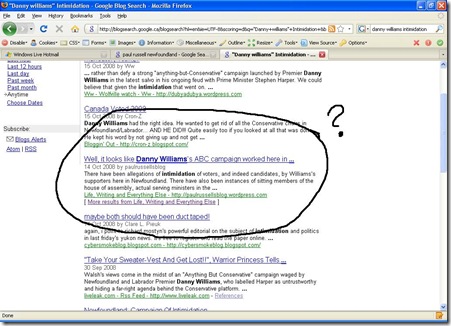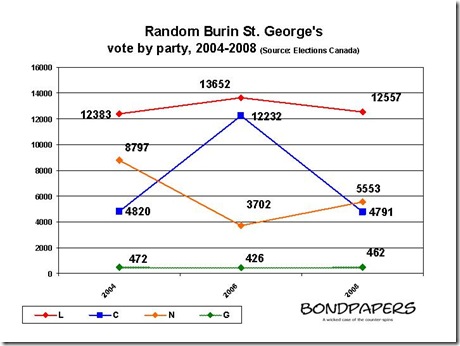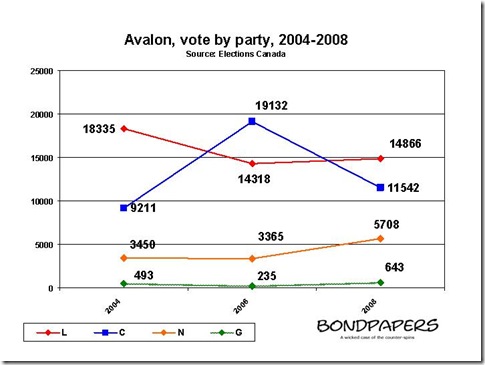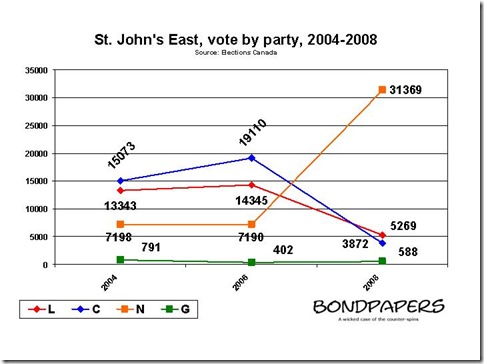1. Pete didn't get the memo: Peter MacKay apparently didn't hear about the kiss-and-make-up comments from his boss the Prime Minister and Danny Williams over this whole Family Feud thingy. Speaking with the Chronicle Herald, the guy touted as being minister responsible for Newfoundland and Labrador laid it on the line:
“I think he’s just cooling his jets until his next blow-up," said Mr. MacKay. “He’s got a mercurial personality and all indications are that the next time that the wind changes or he feels offended, he’ll go off like a mad hatter again."
Mr. MacKay, who will likely end up as Newfoundland and Labrador’s representative at federal cabinet, said the premier of Newfoundland and Labrador “has lost the plot."
“It did become so irrational and personally vindictive on the part of a Conservative premier," he said.
Ermmm.
It wasn't the Mad Hatter that went about shouting "Off with her head."
2. That's so 1960s: Also in the Chronicle Herald, the accumulated wisdom of a few of Halifax's advertising geniuses. Like, for instance, Don Veinish from Cossette Atlantic:
Danny Williams’s ABC campaign sure seemed to work, but I have to plead ignorance on whether it involved advertising or not.
Thanks for paying attention, Donny.
Then again, you just about prove the point you made:
People these days are exposed to the best of everything in the communications arena, including advertising. OK-ish ad efforts aren’t OK because they don’t meet the standard and tend to be disregarded or entirely disdained. Bottom line: If advertising had made much of a difference, there would be a difference today. There isn’t.
Speaking of not meeting the standard and tending to be disregarded, wonder how Don would feel about the idea of a billboard on the Gardiner?
3. Dons and Peelers: Turns out that both some local bands of bobbies as well as Oxford University (as well as 11 other universities and assorted government entities) were stunned enough to squirrel away money in Icelandic banks.
4. Suck AND Blow: New Labour starts to look a lot like old Conservatives, right down to the complete absence of logic:
[Culture (!!!???) secretary Andy] Burnham said that the "online challenge" had resulted in two dangerous tendencies emerging.
Firstly he criticized the burgeoning tendency in television to mimic the user-generated, "here's my blog" feel of much of the Internet, particularly in current affairs and news.
"The Internet as a whole is an excellent source of casual opinion," he said. "TV is where people often look for expert or authoritative opinion."
The second reaction to the rise of the Internet has been a "tendency towards safety first and the tried-and-tested, and way from innovation, risk-taking and new talent", he argued.
So on the one hand television is tending toward innovation, risk-taking and new talent by aping the Internet but at the same time, television is tending away from innovation, risk-taking and new talent.
The only challenge here would seem to come for Andy when thought is involved in his activities. [h/t to Guido Fawkes]
5. Blow and Suck: Also from Guido, the story of a pollster in a conflict of interest. Speaking of conflict of interest, thank heavens no pollsters in eastern Canada would do work for government and at the same time release poll results without disclosing that government had helped fund the poll on local politicians' popularity or lack thereof.
Like say upwards of four times a year?
Nah.
Could never happen.
 6. Blown away? A google blog search for "danny williams + intimidation" turned up two links to a blog by Paul Russell from Newfoundland and Labrador called Life, Writing and Everything Else.
6. Blown away? A google blog search for "danny williams + intimidation" turned up two links to a blog by Paul Russell from Newfoundland and Labrador called Life, Writing and Everything Else.
They contained two references to alleged political intimidation.
Click on the link and you'll find that...
wait for it...
The blog's gone.
Suddenly.
Not just the posts.
The whole blog.
 Hmmm.
Hmmm.
Now it's not like he violated the broadcast prohibitions under the Canada Elections Act like at least one local blog did on Tuesday night.
Even if that were the case, the worst that could happen would be a fine.
A big fine.
But not death to the entire operation.
Nope.
Paul Russell, if you're out there, drop us a line and let us know what happened to your blog and those posts.
After all, they're just allegations and as long as they are labeled as such and unless and until someone brings forward evidence to back up the claims, no one should have a problem with it.
-srbp-








